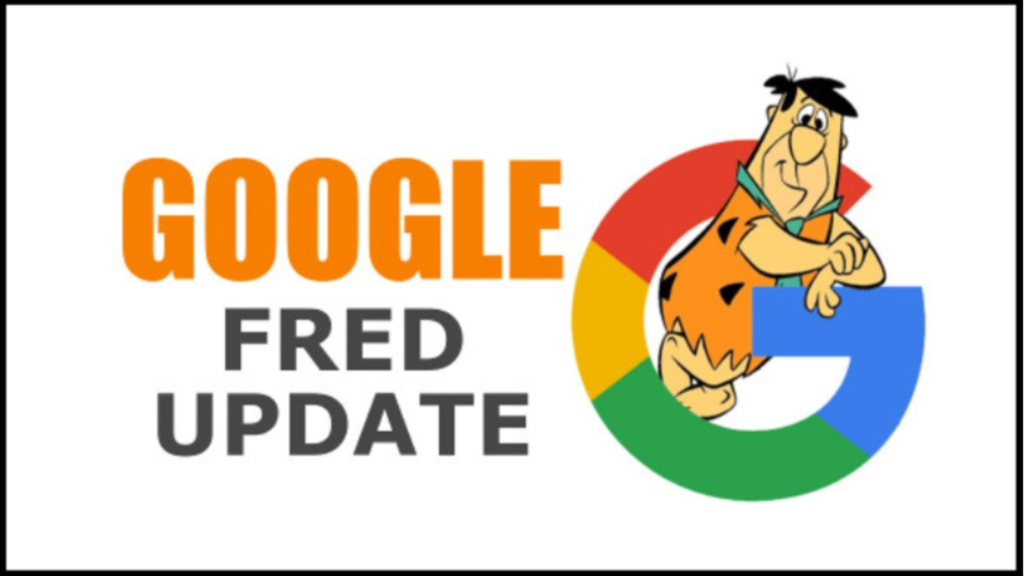So a LOT of people have been talking about “Fred” and there’s been massively varying stories to what “Fred” has actually hit.
Every year, webmasters have to deal with a new algorithm update from Google. In 2015 we had the Pigeon update, in 2016 we had the Panda update, in 2017 we had the Fred update, and in 2018 we had the Medic Update.
In March 2017 Google rolled out what is now known as the Fred update.
However, “Fred” isn’t a singular update and it was aptly named by a joking Tweet from Gary Illyes telling Barry Scwartz to name “all future core updates” as “Fred” – In my opinion, some pretty bad journalism from Barry naming this Fred after that Tweet and making it seem as if it was one, singular update.
The update’s impact was evident as early as March 8th, with some websites reporting a staggering 50-90% decline in organic traffic from Google searches. Automated tracking tools also detected volatility and fluctuations, further indicating an algorithm shift.
Despite initial silence from Google, Webmaster Trends Analyst Gary Illyes confirmed the update during a March 23rd AMA session. This belated acknowledgment left many site owners scrambling to understand the update’s criteria and potential recovery strategies.
To delve deeper into the nuances of Fred and its implications for website owners, continue reading this informative article.
What Sites Did the New Google Update Impact the Most?
The recent Google update, dubbed Fred, has sent shockwaves through the SEO community, leaving many wondering how it will impact their websites.
While the full extent of Fred’s reach remains unclear, it’s evident that websites with low-quality content, excessive ads and affiliate links, and a lack of industry expertise have been hit the hardest.
This latest update reinforces Google’s commitment to rewarding websites that prioritise valuable, original content. Sites that have taken a beating from Fred should take this as an opportunity to re-evaluate their content strategy and focus on providing their users with genuine value.
Interestingly, some websites have reported a surge in organic traffic since Fred’s implementation. This suggests that Google is indeed rewarding those who are putting user experience first.
In summary, Fred is a clear message from Google: prioritise quality content, and you’ll be rewarded. Those who continue to focus on ranking tricks and monetization without providing value to their users will likely face the consequences.
How to Recover if Fred Hurt Your Ranking
Since its release, some websites have experienced a noticeable rebound in their search engine rankings following the implementation of the Google Fred update.
The most straightforward approach to recovery, as reported by some site owners, involves removing intrusive or excessive advertising. While this may be an effective short-term solution, it is not a viable long-term strategy for most websites. The reality is that if your site has been impacted by Fred, it is crucial to address underlying issues that may be compromising user experience.
Based on current observations, the following steps appear to be instrumental in recovering from Fred:
- Abide by Google’s advertising guidelines and avoid employing aggressive monetization tactics.
- Exercise caution when using affiliate links to ensure they align with the content and provide genuine value to users.
- Prioritise creating high-quality, informative content that addresses users’ needs and interests.
At this juncture, resorting to drastic measures in response to Fred is unwarranted. The evolving nature of this update necessitates a cautious approach, relying on verifiable information and Google’s guidelines to rectify any identified issues.
Ultimately, Google’s primary objective is to deliver valuable content to its users, not to penalise webmasters and SEOs. By adhering to the recommended steps and prioritising user satisfaction, websites can effectively navigate the impact of Fred and regain their rightful position in search results.
What Fred Means For SEO Moving Forward
Despite initial concerns, the latest Google update aligns with established Webmaster Guidelines and emphasises the importance of providing valuable content to users.
Google’s latest update reinforces its commitment to prioritising websites that deliver genuine value to their visitors. Link-building strategies that prioritise quantity over quality may face increased scrutiny, particularly those involving private blog networks (PBNs).
Websites that fail to adapt to these evolving guidelines risk experiencing reduced traffic and hindering their overall success. To thrive in the ever-changing digital landscape, focus on attracting organic page views through ethical and effective SEO strategies.
For comprehensive SEO guidance, refer to our SEO strategy template and stay ahead of the curve.



